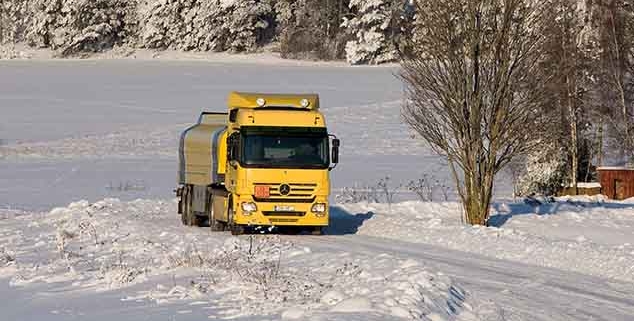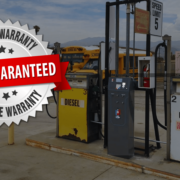Tips to prepare your trucks for winter
Falling temperatures, snow, and ice hitting large swaths of North America, presenting challenges for trucks and fleets. Now is the time to prepare. Here are some tips to avoid no-starts, frozen doors, and windows, engine freeze-up, and accidents.
Battery
Cold weather drains batteries fast. Check the age and strength of your battery.
Cooling system
You have to worry about cooling systems in cold weather. A comprehensive winterization check should include inspections of the radiator, belts, and hoses for potential failures. Also, check the coolant to see if it’s at the optimum freeze point.
Tires and brakes
Remember that driver assistance technologies like stability control and collision mitigation rely on the maintenance of complementary systems like tires and brakes to ensure performance in the field. Maintaining these systems is especially critical in winter when electronic systems may be called on more often to help mitigate crashes. Check tires for adequate tread depth and proper wear, and wheel-ends for tight bolts and cracks.
The fuel filter and water separator
Monitor the truck’s water separator daily and drain it when full to avoid contamination. Replacing old fuel filters also protects the engine.
Cabin Air Filter
Cabin air filters often get neglected on late model cars and trucks. You may not consider this important maintenance, but a clogged cabin air filter can dramatically reduce airflow through your car’s heater, stressing the blower motor and overheating the blower motor resistor.
Fuel efficiency
Remove accessories that can increase wind resistance: a large roof-top cargo box can reduce fuel economy by 2% to 8% in city driving, and 6% to 17% on the highway, reports FuelEconomy.gov.
Try to park in a warm place: your engine will stay slightly warmer in the garage than it would if you park outside in the elements. There are two major benefits to this: it will reduce the time needed for your engine to warm to a fuel-efficient temperature, and it will save you from needing to use a defrosting feature in your vehicle that can lead to getting fewer miles per gallon.
Monitor your tire pressure: To ensure that your vehicle is getting the maximum fuel economy possible, keep a close eye on your tire pressure. Winter temperatures can cause changes in tire pressure and those changes can hurt your fuel efficiency.









